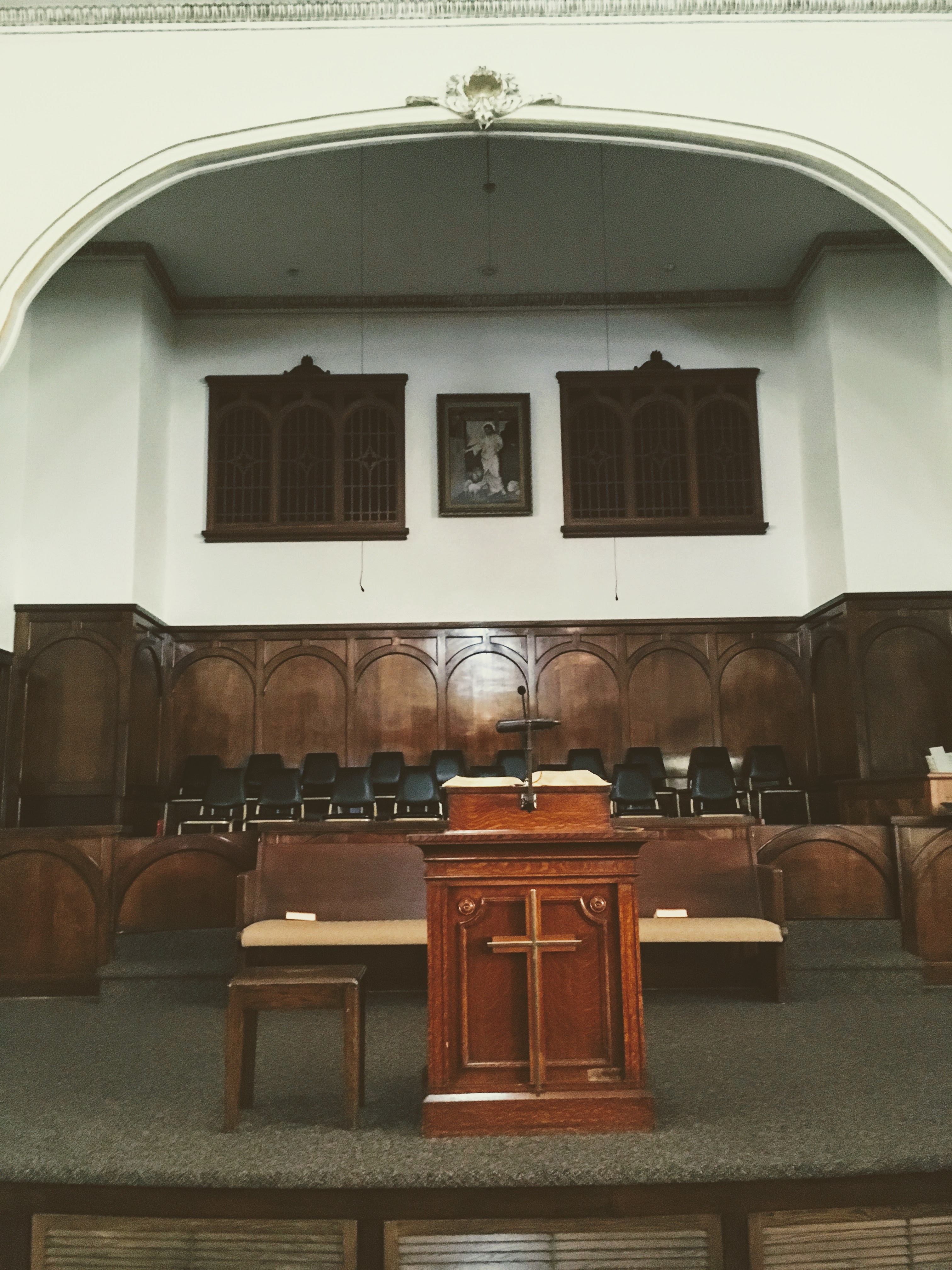January 10, 2021
Order of Worship
Prelude
Announcements
Moment of comfort
Music
Prayer Concerns
Pastoral Prayer
Message: “Pleasing to God”
Scripture: Mark 1:1-11
Open Worship
Benediction
Postlude
Announcements
Good morning, and welcome to worship at University Friends!
- Thank you, Rosemary. Thanks also for technical support by Michael Barrett and Joe Dawley, music coordination by Dawn Blue.
- We are live streaming on Facebook and the church website (wichitaquakers.org).
- Please feel free to share our worship with your Facebook friends by posting a link.
- Please also feel free to comment on the Facebook page with prayer concerns or announcements.
- And if you worship with us online only and would like to be more connected, please leave a message on the Facebook page or website. Someone will get back to you, and, if you wish, we can put you on the list to receive our weekly newsletter.
- Today at 1:00 is a Threshing Meeting to discuss the proposal from Friends University about our building.
- The Zoom link has gone out on email and in the newsletter and is also posted in the private Facebook group.
- Supporting materials (the proposal itself and several other documents) have also gone out with the newsletter and are posted on the church website (http://wichitaquakers.org/friends-university-the-future-of-the-ufc-building/).
- This Week
- Monday, January 11, 9:30 am, Transition Team
- Monday, January 11, 12:00 pm, Prayer with Sue
- Tuesday, January 12, 6:30 pm, Book Club
- Wednesday, January 13, 6:30 pm, Bell Choir
- Thursday, January 14, 8:30 am, Prayer with Kim
- Thursday, January 14, 3:30 pm, Clerks Committee
- Sunday, January 18, Monthly Meeting for Business
Before I go on, I want to acknowledge that this has been a rough week. Besides a raging pandemic and political turmoil, we have lost a pillar of the church. Dave McDonald took his last breath yesterday afternoon.
In such a time as this, I want to share two words of wisdom from our Quaker tradition.
The first is from George Fox’s Journal, 1647:
I was under great temptations sometimes, and my inward sufferings were heavy…. I saw also that there was an ocean of darkness and death, but an infinite ocean of light and love, which flowed over the ocean of darkness. And in that also I saw the infinite love of God (19.03, https://qfp.quaker.org.uk/chapter/19/)
Here’s the second. In June 1660 Margaret Fell delivered to Charles II a paper directed to the king and both houses of parliament making clear the corporate testimony of Friends ‘against all strife and wars’:
We are a people that follow after those things that make for peace, love and unity; it is our desire that others’ feet may walk in the same, and do deny and bear our testimony against all strife, and wars, and contentions that come from the lusts that war in the members, that war in the soul, which we wait for, and watch for in all people, and love and desire the good of all… Treason, treachery, and false dealing we do utterly deny; false dealing, surmising, or plotting against any creature upon the face of the earth, and speak the truth in plainness, and singleness of heart.
(19.45, https://qfp.quaker.org.uk/chapter/19/)
Let us take a few moments of quiet to receive comfort from God and one another.
Music: “Sweet, Sweet Spirit,” Hymn #89
Prayer concerns
- The McDonald family
- Don and Linda Mallonee
- Sherry Johnson, dealing with advanced cancer and decisions about treatment
- Our country at this time of a transfer of power
- Our community as it deals with the pandemic
- Our church in the time of transition — May we find clarity and energy for the tasks at hand and the decisions we will need to make as we find our way forward. May we find ways to use our assets wisely and well. May we discover ways we are to be a beacon of love in our world. May we be looking for the doors you are opening, and may we have the courage to walk through them. May we see what you are doing in our world and join you in it.
Pastoral prayer
O God, our help in ages past,
Our hope for years to come,
Our shelter from the stormy blast,
And our eternal home. (https://www.hymnal.net/en/hymn/h/607) We turn to you.
Message: “Pleasing to God”
Scripture: Mark 1:1-11
In these days of political chaos, in these days of rampaging pandemic, we are struggling. We may be afraid or anxious. And with good reason, right?
We long for peace and stability. We sometimes long for days past.
The reality is, and you know this, we can’t go back. We can’t go back to the 1950s or 70s or 90s. Really, we can’t even go back to 2019. We can’t even go back to last January or yesterday. We can only go forward. And, as someone has suggested, looking back keeps us from moving forward. If we’re looking back, we’re not seeing what’s right in front of us. If we’re looking back, we can’t see the next steps.
The only way forward is by facing today and going through whatever is ahead.
If longing for the past is false comfort, where do we find real comfort?
I find comfort not in the idea that God is in control, but in the promise that God is with us. I find peace not in the possibility that everything that happens comes from the hand of God, but in the reality that God is always working for good, always reaching out with grace and love. This I know experientially.
Besides those words – that we can only go forward, not back; that God is with us and always reaching out with grace and love – the message I feel led to bring today is based in Mark 1:1-11.
Here it is in the New Revised Standard Version:
1 The beginning of the good news[a] of Jesus Christ, the Son of God.[b]
2 As it is written in the prophet Isaiah,[c]
“See, I am sending my messenger ahead of you,[d]
who will prepare your way;
3 the voice of one crying out in the wilderness:
‘Prepare the way of the Lord,
make his paths straight,’”
4 John the baptizer appeared[e] in the wilderness, proclaiming a baptism of repentance for the forgiveness of sins. 5 And people from the whole Judean countryside and all the people of Jerusalem were going out to him, and were baptized by him in the river Jordan, confessing their sins. 6 Now John was clothed with camel’s hair, with a leather belt around his waist, and he ate locusts and wild honey. 7 He proclaimed, “The one who is more powerful than I is coming after me; I am not worthy to stoop down and untie the thong of his sandals. 8 I have baptized you with[f] water; but he will baptize you with[g] the Holy Spirit.”
9 In those days Jesus came from Nazareth of Galilee and was baptized by John in the Jordan. 10 And just as he was coming up out of the water, he saw the heavens torn apart and the Spirit descending like a dove on him. 11 And a voice came from heaven, “You are my Son, the Beloved;[h] with you I am well pleased.”
Out of that passage, I want to raise two queries: Of what do we need to repent? What about us would be pleasing to God?
Mark 1:4-5 in the New Revised Standard Version say, “4 John the baptizer appeared[e] in the wilderness, proclaiming a baptism of repentance for the forgiveness of sins. 5 And people from the whole Judean countryside and all the people of Jerusalem were going out to him, and were baptized by him in the river Jordan, confessing their sins.”
The same verses in The Message say, “John the Baptizer appeared in the wild, preaching a baptism of life-change that leads to forgiveness of sins. People thronged to him from Judea and Jerusalem and, as they confessed their sins, were baptized by him in the Jordan River into a changed life.
The Message makes clear that the path toward change begins with acknowledgement of sins, with recognizing that we have sometimes failed to live up to what God wants for us, that in doing so, we have made things worse rather than better because of decisions we have made and things we have done.
This morning I want to think about that, about the reality that the path toward change begins with acknowledging our sins, in two ways – for us as individuals and for us as a congregation.
As individuals, of what do we need to repent? Of what do I need to repent? Of what do you need to repent?
I’m going to give a few moments for reflection, but first I want to reflect on something that Scott Peck wrote in The Road Less Traveled. There, he suggested that there are two types of people. One type takes responsibility. Sometimes they take responsibility for things over which they have no control – all the world’s problems are somehow their fault, and they get all tied up in knots about it. Peck says that these people are partially correct – they are responsible for some things. And that’s good, because key to repentance, key to the first step toward change, is acknowledging our role in making things worse rather than better.
Of course, these people also tend to feel responsible for things that are way beyond what they’re actually responsible for. And that’s not so helpful. So, as we think about what we need to repent, let’s focus on things that are actually ours.
The other type of people that Peck talks about don’t take responsibility for their own misdeeds. Instead, they blame others for their problems. Of course, they’re partially correct – some things aren’t their fault. It’s sometimes useful, for example, to see how the sins of our parents are visited upon us. But these people are also partially mistaken – some things are their fault. Some things are my fault. Some things are your fault. So, as we think about what we need to repent, let’s focus on things that are actually ours.
In order to change, we need to face reality about where we are now. Grace abounds. God’s love is infinite. And we have to face our own reality before we can let that grace and love work to bring about change.
Imagine that you are one of the people who have gone to hear John speak. When you get there, you find a guy dressed in “a camel-hair habit, tied at the waist with a leather belt” (Mark 1:6, The Message). Just seeing him was worth the trip. But his preaching. Wow.
You listen to his message. “Repent. Take the first step toward a changed life.” When you hear John say, “Repent,” what do you know he is talking about? Not all the problems of the world, not what other people have done, but you. What things that are actually yours need the kind of attention that John preached about? “Repent. Take the first step toward a changed life.” Open your heart and life to the grace of God. [Pause.]
Now I want you to imagine that you are gathered together for worship in this space. Where will you be sitting? Can you see the light from the stained-glass windows?
You have come this morning to hear a guest speaker. John, son of Zechariah and Elizabeth. He’s got quite a reputation, and we’re lucky to get him. One of the points he makes is that he is just the opening act for someone who won’t baptize with water but with the Holy Spirit.
Well, you like that, because you’re a Quaker, and Quakers don’t think water is all that important anyway.
Then, John addresses you as a congregation. “Repent. Take the first step toward change.” When you hear John say, “Repent” to you as a congregation, what do you know he is talking about? What needs to be acknowledged? What needs healing? [Pause.]
Let God’s sweet spirit cleanse and heal and empower this congregation.
Mark tells us that Jesus himself went to hear John’s preaching. As he heard John’s message, Jesus opened his life to God in the way John suggested. And John baptized Jesus in the river.
And just as [Jesus] was coming up out of the water, he saw the heavens torn apart and the Spirit descending like a dove on him. 11 And a voice came from heaven, “You are my Son, the Beloved;[h] with you I am well pleased.”
The idea of God’s pleasure in Jesus reminds me of several places in the Hebrew Scriptures that talk about aromas that please God.
One example is in Exodus 29, where it talks about consecrating priests. At one point in the consecration ritual, they were to kill a ram, put it on the altar, and burn it up: “turn the whole ram into smoke on the altar; it is a burnt offering to the Lord; it is a pleasing odor, an offering by fire to the Lord” (Exodus 29:18).
Here, Exodus says the smell of roasted ram was pleasing to God.
I’m not sure I have ever smelled roasted ram, but I do like the smell of roasting turkey. Not just the few minutes of grilling a hamburger, but for hours, the smell of roasting turkey fills the house. The smell of baking bread is pretty good too.
Now let’s go back to the river with John the Baptist.
The Gospel of John says Jesus gave power to his followers to become children of God, and I want to play with that idea a bit.
So, you have gone to the river to hear John speak. You see John, you listen to his message, “Repent. Take the first step toward a changed life.” You know in your heart of hearts what God is speaking to you about. And you say yes. You open your heart and life to God.
When John asks who wants to be baptized, you go forward. You walk into the edge of the river. John helps you in and out of the water. And as you emerge, you hear (not the audible voice that spoke to Jesus, but a word in your heart), “You are my child, and I am pleased with you.”
Of what is God pleased about you? What about you is as enjoyable to God as the smell of baking bread? [Pause.]
Receive God’s affirmation: “You are my child, and I am pleased with you.” [Pause.]
Now let’s try this is a church.
We are gathered together for worship in this space. Where will you be sitting? Can you see the light from the stained-glass windows? You have come this morning to hear a guest speaker. John, son of Zechariah and Elizabeth.
We as a congregation respond to John’s message of repentance. Yes, we want to begin a changed life. And, there, in the silence, as we turn our church’s life over to God, we hear God’s voice, “You are my church, and I am pleased with you.”
What about University Friends is God pleased about? What is enjoyable to God about this congregation? What about this church is as wonderful as the small of baking bread? [Pause]
Receive God’s affirmation, “You are my church, and I am pleased with you.”
Open Worship
Let us join together in a time of quiet waiting, communion after the manner of Friends.
Benediction
May you, may we, find the places where we need to repent and begin a changed life.
May you, may we, receive God’s affirmation.
Postlude
We are meeting in person and also streaming our sermons on Facebook at 10:00 AM CST. Watch live:
https://www.facebook.com/universityfriendschurch/
Not on Facebook? You can see all of our posts and videos on our site here!



